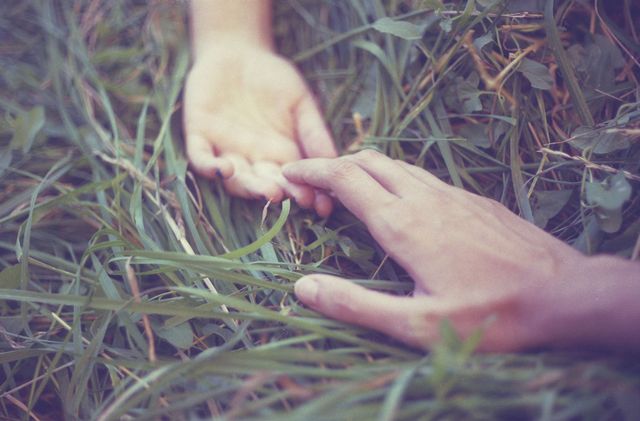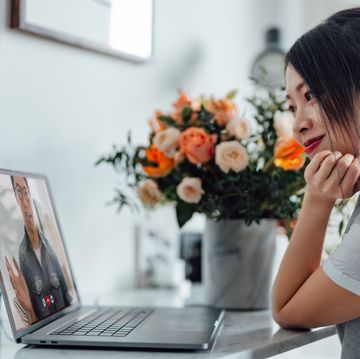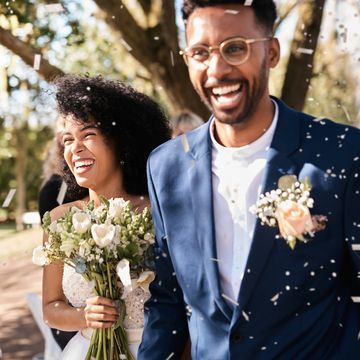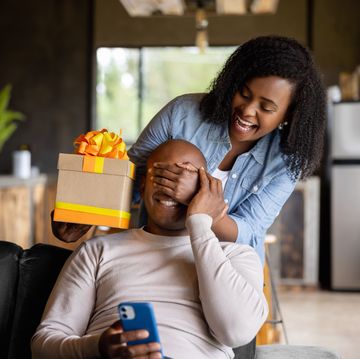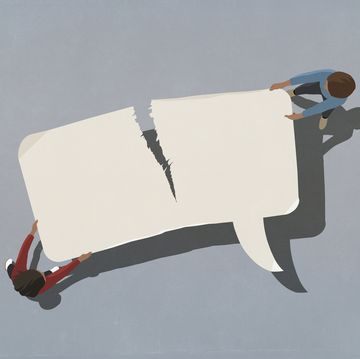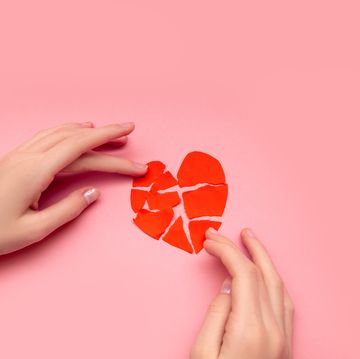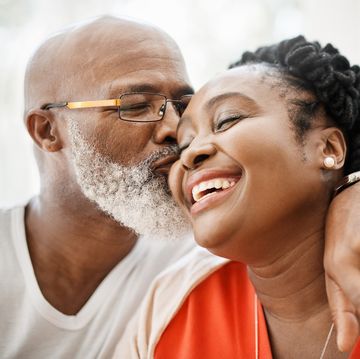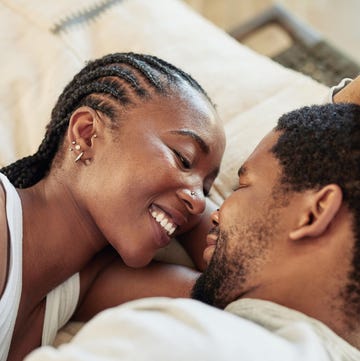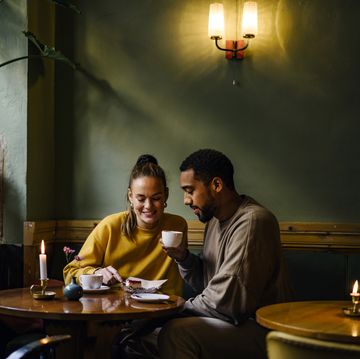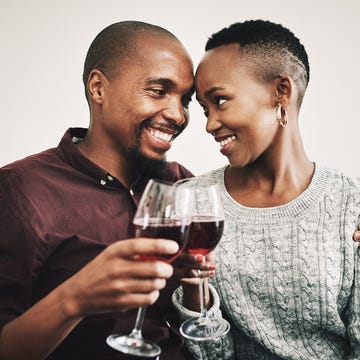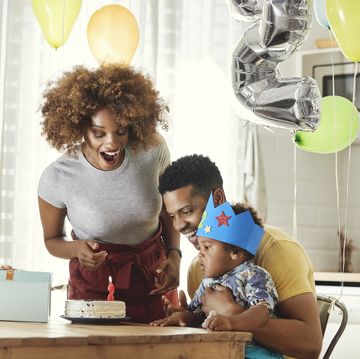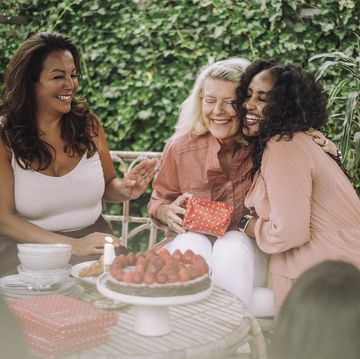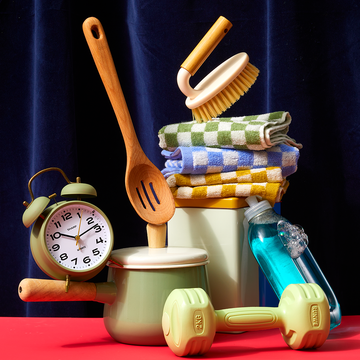There's no doubt about it — we live in a highly sexualized society. Physical attraction is an important talking point, especially growing up, and if you're not discussing crushes and pulls, you can be viewed with suspicion. But a growing movement is coming out publicly to say, "No, we aren't wired the same way as you — and that's just fine by us." Simone, 28, is part of that movement and she agreed to tell Cosmopolitan UK exactly what it all means.
"Someone who is asexual doesn't experience sexual attraction," she explains. "In terms of sex drive, it varies from person to person, so a lot of asexuals say they don't have any kind of drive, whereas others say they have, but it's like being hungry yet not wanting to eat any particular food." Simone has never had sex, but has been in relationships. "I have had brief relationships in the past but I felt like it wasn't really for me. I would say, however, that I'm a minority amongst asexuals — most of my asexual friends are in relationships." So, how does that work? "We tend to say in the asexual community people have romantic orientations despite not having a sexual one. People talk about being hetero-romantic, bi-romantic, homo-romantic etc. Others call themselves aromantic, meaning they're not romantically attracted to anyone. I would put myself in the last category."
Simone's former partners have been accepting of her lack of sexual interest — but not everyone was as understanding. "The people I've been in relationships with have been other people who've seemed happy not to have sex, although I wouldn't necessarily call them asexual," she says. "In my early 20s, I had quite a few initial dates that didn't go anywhere because of the fact I wasn't interested in sex. I was still slightly in denial about being asexual at that point though. I still thought it was something I could change or just get over somehow."
"I wouldn't say being asexual has been a barrier, as I'm quite happy being single," she continues. "I would consider being in another relationship in the future, but whether or not that would look like a stereotypical relationship to other people I'm not sure, because I'm really not a physical person at all. This isn't common to all asexuals. A lot like kissing and cuddling and other romantic affectionate physical gestures."
So, what would a relationship look like to her? "If I was in a relationship, it would be more about security and practicality!" she explains. "And it would have to be with someone who was on the same page. I wouldn't want to be depriving anyone of what they considered a full relationship, so I'm aware that my dating pool is small."
Simone realized she was a little different when she was at secondary school. "I went to an all-girls school and there was an all-boys school next door," she recalls. "We were taught separately, but at break and lunch times, we were allowed to mingle. As I got to 12 or 13, I noticed that a lot of girls my age seemed really obsessed with going out and talking to the boys, and I didn't really get why. This sounds terrible, but it was a bit like watching a documentary. I was really interested, but I had no idea what was going on. I thought it might all click for me at some point but it never did."
In desperation, Simone turned to her mother for advice. "I asked, 'Why do people pretend to enjoy all this?' and she said, 'Oh, people don't pretend to enjoy it — you can have a bad date, but most of the time people enjoy dating.' That struck me as really strange." Eventually Simone began to question whether she might be gay. "But when I thought about it," she says, "I realized the idea of doing anything sexual with a woman didn't appeal to me either. I had no word to describe what I was feeling — or not feeling."
At 18, in her first year of university, Simone finally discovered the term "asexual" and the asexual community. "When I first told my parents, they weren't surprised," she laughs. "They were worried, though, that if I adopted the 'asexual' label, I'd somehow cut myself off. That if I said, 'This is me,' and called myself asexual for the rest of my life, I'd never have a relationship in the way that most people do. To them, it was all a bit too concrete and final. But that was 10 years ago. Now, they're really supportive of the asexual community. It's just taken them a while to realize what it means."
"You never hear straight people being asked if they might change their minds," Simone concludes. "It's only the rest of us (asexual, LGBTQ+, etc) who get asked. I don't have a crystal ball. Things may well change for me in the future, but I think it would be really great if people could accept that this thing exists." Simone is keen to stress that, although it is now being talked about more, asexuality isn't a youth "fad." "We're not all young people who've read this on the internet and attached ourselves to it. There are older people who've gone through their lives wondering what's wrong with them and then found our community and suddenly it makes sense."
Asexuality has left Simone starkly aware of how oppressive some traditional concepts of womanhood really are. "There's definitely this societal expectation for women to be (or want to be) 'sexy,'" she explains. "For a long time I felt subject to the same pressures, even after coming out as asexual, because to some extent, your own sexual orientation becomes irrelevant. It's about you as an object to be looked at. It was feminism much more than asexuality that gave me the knowledge to unpick these expectations.
"The pressure on women to be sexually attractive goes far beyond the dating world. Just look at the recent debates over whether workplaces can force women to wear high heels as part of a dress code. It's something that has to change." Amen.
*You can head to asexuality.org for advice and forums discussing asexuality.
